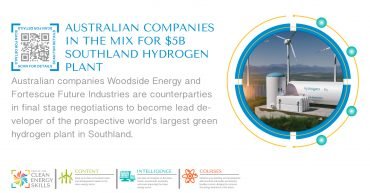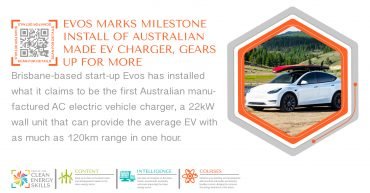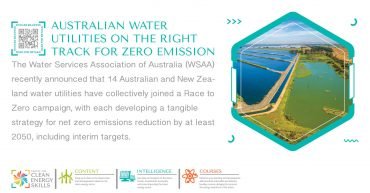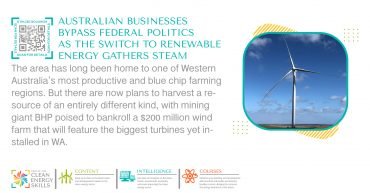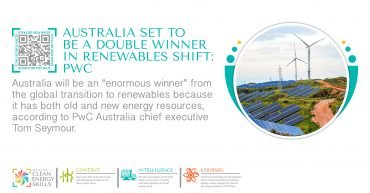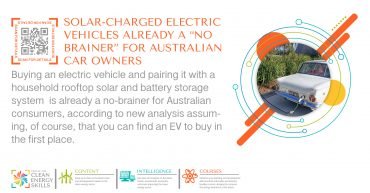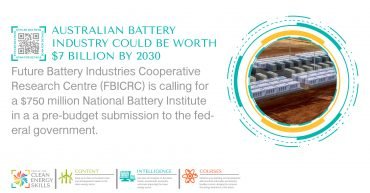German wind giant wpd Group has bought into three big offshore wind projects in Australia under a joint venture deal with UK-based Australis Energy. The three projects – located in Victoria, South Australia and Western Australia – have a combined capacity of around 1.4GW, but could grow significantly if they are expanded into Commonwealth waters rather than just state waters.
Australian companies Woodside Energy and Fortescue Future Industries are counterparties in final stage negotiations to become lead developer of the prospective world’s largest green hydrogen plant in Southland.
Please use the sharing tools found via the share button at the top or side of articles. Copying articles to share with others is a breach of FT.com T&Cs and Copyright Policy. Email licensing@ft.com to buy additional rights. Subscribers may share up to 10 or 20 articles per month using the gift article service.
Brisbane-based start-up Evos has installed what it claims to be the first Australian manufactured AC electric vehicle charger, a 22kW wall unit that can provide the average EV with as much as 120km range in one hour.
The Water Services Association of Australia (WSAA) recently announced that 14 Australian and New Zealand water utilities have collectively joined a Race to Zero campaign, with each developing a tangible strategy for net zero emissions reduction by at least 2050, including interim targets.
The area has long been home to one of Western Australia’s most productive and blue chip farming regions. But there are now plans to harvest a resource of an entirely different kind, with mining giant BHP poised to bankroll a $200 million wind farm that will feature the biggest turbines yet installed in WA.
Australia will be an “enormous winner” from the global transition to renewables because it has both old and new energy resources, according to PwC Australia chief executive Tom Seymour.
Sterling and Wilson Solar has warned that Australia’s large-scale solar PV industry faces a significant workforce shortage as the nation shifts away from fossil fuels toward renewable power.
Buying an electric vehicle – and pairing it with a household rooftop solar and battery storage system – is already a no-brainer for Australian consumers, according to new analysis – assuming, of course, that you can find an EV to buy in the first place.
Future Battery Industries Cooperative Research Centre (FBICRC) is calling for a $750 million National Battery Institute in a a pre-budget submission to the federal government.

